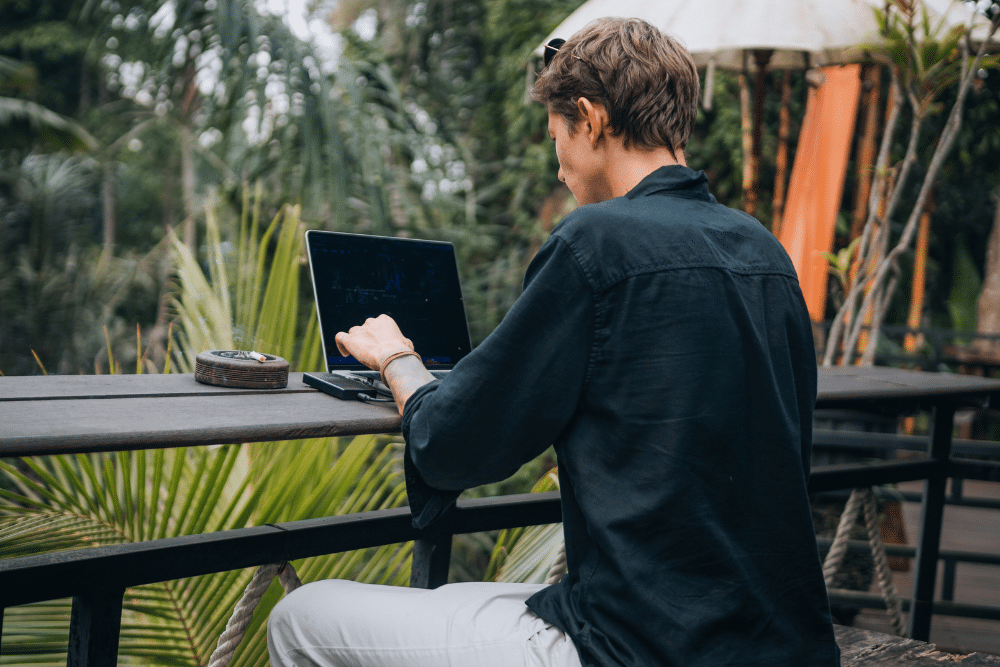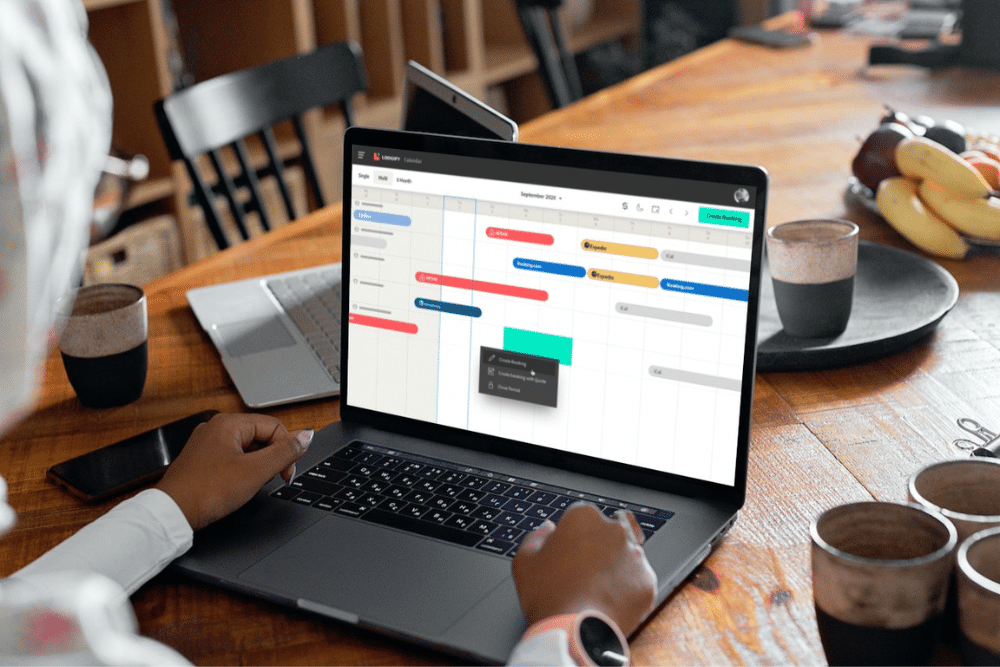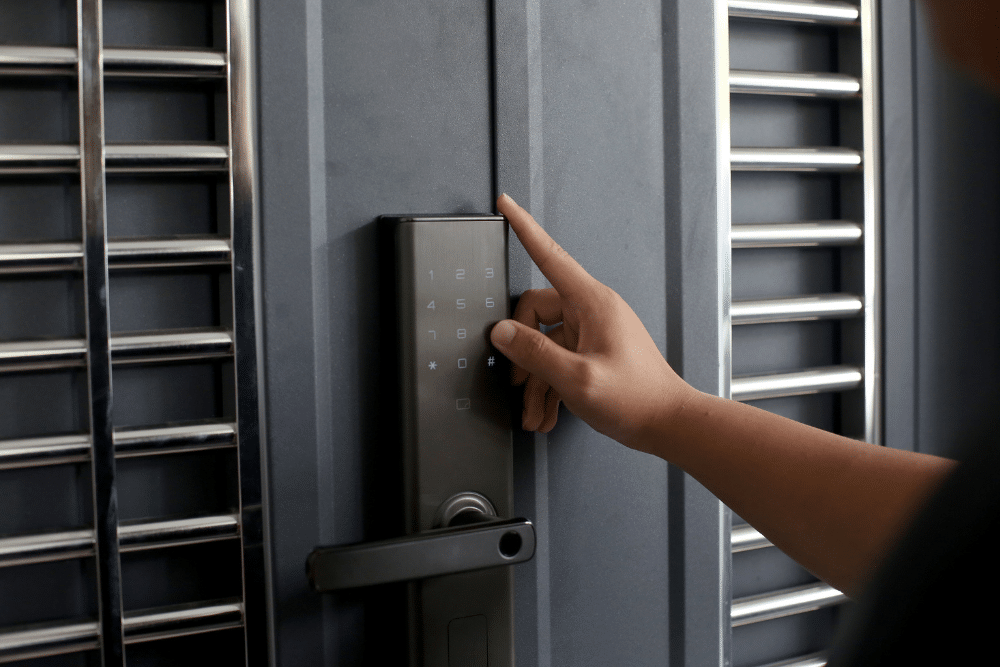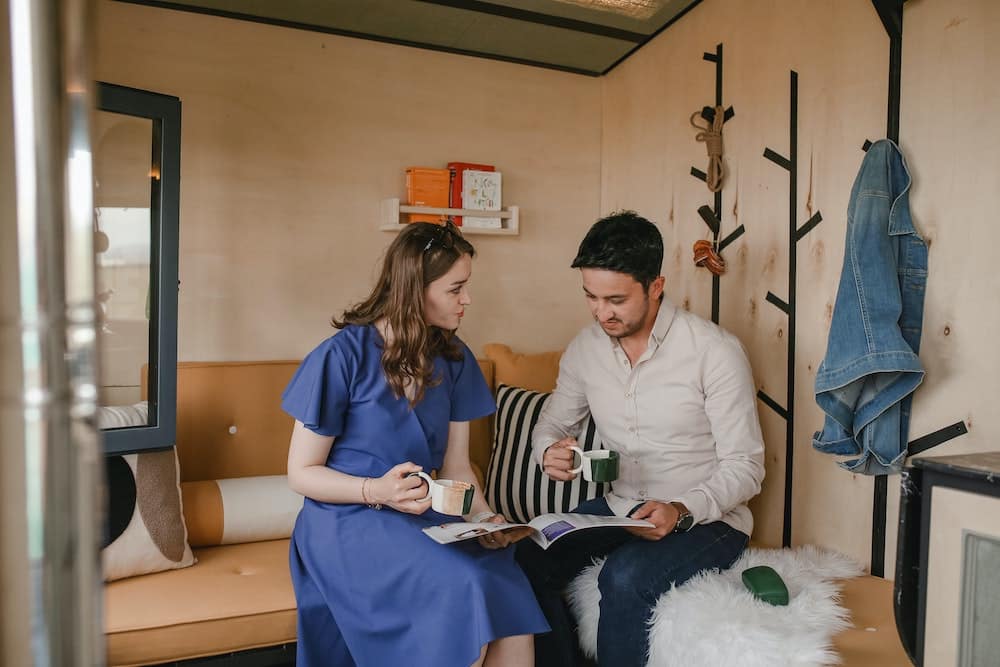Are you a vacation rental host wondering how difficult it would be to manage your Airbnb remotely from anywhere in the world? After all, with almost a quarter of the workforce expected to be working remotely by the end of 2025, you could likely make it work, too, right?
Sure. Between keeping guests happy, managing bookings, and ensuring the place is spotless, it’s easy to think you need to be everywhere at once. But with today’s tech and a bit of insider know-how, it’s totally doable (and can even help you automate aspects of your business that are costly and time-consuming).
With the right tools, tips, and local help, you can successfully manage an Airbnb business remotely. Use our nine tips to help you make the complex simple. Get ready to run your Airbnb like a boss from the beach or even the comfort of another Airbnb on the other side of the world.
Don’t see the form to download the Airbnb Host Guide? Click here.
The benefits of remote Airbnb management
Before we dig into the tips we have to help you learn how to manage an Airbnb property remotely, it’s important that you understand the why. Embracing remote Airbnb management isn’t just about overcoming geographical constraints; it can actually help hosts optimize their rental business and automate tasks to improve efficiency, regardless of where they’re working from.
However, the flexibility remote property management provides is quite a nice perk, isn’t it? Imagine sipping a coffee in Paris while managing your property back in New York—all in real time. This freedom allows you to expand your portfolio without being tied down to one location.

Additionally, it paves the way for scalability. With the right tools and systems in place, handling multiple listings becomes less about manual oversight and more about smart, strategic management.
Depending on the tools and systems you implement, this could also lead to enhanced guest satisfaction. Automated systems ensure swift communication, seamless check-ins, and consistent quality, raising the bar for guest experiences.
In essence, going remote not only streamlines operations and boosts efficiency but also opens up new opportunities for growth and guest delight in the competitive world of Airbnb hosting.
How to manage an Airbnb remotely
Interested in exploring the benefits of remote Airbnb management? Great! Now, let’s dive into those tips we promised you.
Remember that these are general guidelines for your average Airbnb host. It’s always important to look at your vacation rental business from a more objective perspective. Consider your and your guest’s needs as you scale and grow your business and tailor this advice accordingly.
1. Invest in reliable property management software
Reliable property management software acts as the central hub for your Airbnb business, streamlining everything from bookings and payments to guest communication and housekeeping schedules.
With features designed specifically for the needs of vacation rental hosts, you can automate the mundane tasks that eat up your day, including the following:
- Synchronized reservations: We’ll explore more about this in our next tip, but the right vacation rental PMS allows you to sync reservations across multiple platforms to prevent double bookings
- Unified inbox: If you advertise your listing on other platforms aside from Airbnb, your property management software can help you organize your messages into a single feed with a unified inbox for all guest communication
- Improve communication: Use automated templates and triggered messaging to ensure guests receive timely answers to their questions without you having to be on call 24/7
- Analytics and reporting: Create detailed reports on your business results within minutes for informed decision-making, even when you’re far away
- Dynamic pricing integrations: Adjust pricing intelligently through integrations with dynamic pricing tools or access proprietary pricing tools, like Lodgify Dynamic Pricing
- Remote team management: Stay in full control of remote team management for cleaning and maintenance tasks by assigning and managing tasks to team members, all remotely via web software or mobile app
By integrating such a system into your Airbnb business, you’re allowing for scalability and a higher level of service quality that can set your listing(s) apart in a competitive market.
2. Use an Airbnb channel manager
An Airbnb channel manager is a tool designed to simplify how you manage your vacation rental listings across multiple booking platforms.
Often included as part of vacation rental software, it serves as a centralized system that connects your Airbnb property with other OTAs, allowing for real-time synchronization of availability, rates, and booking details.

This means that if you’re listing your property on more platforms than just Airbnb, you can keep track of all your bookings in one place, ensuring that your availability is always up to date and reducing the risk of double bookings—a common concern when managing properties remotely (or honestly even for any host!).
Additionally, it will automatically sync rates, availability, and booking details across all channels, of which you can view from a single dashboard.
3. Automate guest communication
Another way to streamline your Airbnb hosting duties is to automate guest communication. The key here is to strike the right balance between efficiency and personal touch in your interactions.
Here are some tips to get started:
- Start by writing templates for the most common communications—welcoming guests, providing check-in instructions, and answering FAQs.
- Schedule those automated messages to be sent at optimal times. For instance, a welcome message could go out on the morning of check-in, while checkout instructions might be sent the evening before departure.
- While automation is key, personalize everything where possible. Tailor your messages with the guest’s name and customize details relevant to their stay whenever possible.
If you struggle with crafting the perfect message, use AI messaging tools to help provide you with a great starting base. Lodgify’s AI Assistant, for example, draws from various online sources, including general online data, your Lodgify account details, and reservation data, to create custom responses that you can edit further if needed.
4. Implement smart home technology
Installing smart home technology is a win-win for you and your guests. It can elevate the guest experience and make them feel like they’re staying at a modern accommodation. And for hosts, it’s a way to make remote management smoother and more efficient.
Here are a few ways to leverage smart home technology in your Airbnb:
- Smart locks: Replacing traditional keys with smart locks allows guests to check themselves in and out with a code. This eliminates the need for physical key exchanges and offers you peace of mind regarding security.
- Smart thermostats: With smart thermostats, guests can adjust settings to their comfort without wasting too much energy, and you can remotely control the thermostat between bookings to save on utility bills.
- Smart lighting: Smart lighting systems allow you to control lights remotely, giving the impression the property is occupied even when it’s not. This can deter potential break-ins when you’re away for long periods, and your Airbnb isn’t occupied.

5. Create a comprehensive welcome guide
Whether you manage your Airbnb remotely or not, a well-crafted guide can significantly enhance your guests’ experience by providing them with all the information they need for a comfortable and enjoyable stay (it’s even better if you have a digital guidebook!).
Here’s why they’re so important (and how to create one that’s actually helpful):
- Centralize important information: Your welcome guide should include everything from WiFi passwords and how to operate appliances to local emergency numbers and your house rules. This ensures guests have quick answers to common questions, reducing the need for back-and-forth communication.
- Include local recommendations: Go beyond the basics by adding your personal recommendations for nearby restaurants, attractions, and activities. This adds a personal touch and helps guests feel more connected to the local area, even if you can’t be there to greet them.
- Update regularly: Ensure your Airbnb welcome guide or digital guidebook is always up to date with the latest information. This includes checking that all codes, contact numbers, and recommendations are current before each guest’s arrival.

As mentioned, a digital guidebook is usually the best option, as they’re easier to update and send to guests.
Regardless of whether you go digital or not, though, a great welcome guide (which should include your vacation rental house rules) reduces the likelihood of guests encountering issues that require immediate attention, allowing you to manage your property more effectively from afar.
6. Organize professional cleaning and maintenance services
Ensuring a spotless and well-maintained space is important for guest satisfaction and positive reviews. However, it’s also one of the most difficult things to coordinate from afar.
After all, how can you be sure your staff are cleaning the space up to your standards? How do you know when certain stock is getting low, and you need to replace toilet paper or soap before you run out?

To streamline this process, leverage apps or vacation rental software integrations. Breezeway, for example, allows for real-time syncing with your booking platform, automating the scheduling of cleaning and maintenance tasks according to check-ins, check-outs, and vacancies.
Most tools provide apps for detailed task management, enhancing communication with your service teams, and offering oversight through dashboards for tracking progress and issues.
7. Stay informed about local regulations
Just because you’re far away doesn’t mean you can’t (or shouldn’t) ensure you’re always up to date on the latest rules and regulations regarding Airbnb in your area. As you likely know, they change constantly and affect everything from tax obligations to licensing requirements.
Aside from hiring a lawyer to help you make sense of it all, what else can you do? Here are a few tips for remote hosts:
- Regularly check official sources: Make it a habit to consult your city or municipality’s official website and any relevant regulatory bodies for the latest information on short-term rental regulations.
- Join host communities: Online forums or local host groups are often invaluable sources of information. Other hosts in the area often share updates, insights, and advice on complying with local laws. At the very least, they’re great for seeing what others are talking about to ensure you don’t miss anything important.
For complex situations, consult with a legal expert specializing in real estate or short-term rentals in your area who can provide clarity and ensure compliance. This is especially important if you’re not a resident in the state where you’re managing your Airbnb.
8. Consider working with a local co-host
You don’t have to do it all alone! Working with an Airbnb co-host is a great way to ensure you have a trusted team member in the area to help manage everything.
Namely, they can help you enhance the guest experience by providing immediate assistance, sharing insider knowledge of the area, and managing day-to-day operations such as check-ins, maintenance, and emergencies.

To make this partnership work effectively:
- Choose the right co-host: Look for someone reliable with excellent communication skills and a good understanding of the Airbnb platform.
- Clearly define your roles: Set clear expectations about what their role entails, including specific tasks and how issues should be escalated to you.
- Stay connected: Regular updates and shared access to a calendar or management software are super important. Leverage those kinds of tools to ensure you’re well-informed about everything related to the property.
Most importantly, you should have an Airbnb co-host agreement in place. View our breakdown of the importance of this agreement here (and use our template as a guide!).
9. Build a local support network
Seeing as you won’t be visiting the property very often, it’s helpful to have a network of trusted people who can. So, as we mentioned above, start by identifying reliable local service providers, such as cleaning companies, handymen, and property management services. Ask for recommendations from other Airbnb hosts in the community and ensure you’re working to build those relationships, too.
And while we’re on the subject of locals, don’t overlook the value of building rapport with neighbors! They can be your eyes on the ground, alerting you to anything amiss at your property and sometimes even assisting guests in a pinch.
Manage your Airbnb better with the right tools
Like any remote job these days, managing an Airbnb remotely is a lot easier with the right tools.
From leveraging technology to streamline bookings and operations to building a reliable local support network, implementing our tips makes it possible to maintain high-quality guest experiences from anywhere in the world.
If you’re looking for a tool that covers all of the issues mentioned above (and more), consider investing in vacation rental software that allows you to manage your Airbnb effectively while also helping you gain a comprehensive understanding of your business operations.
With its intuitive interface, real-time booking management, and integrated communication features, Lodgify ensures that your rental business thrives, even from afar. Experience the ease and efficiency of managing your Airbnb property remotely by signing up for a free 7-day trial of Lodgify today.

